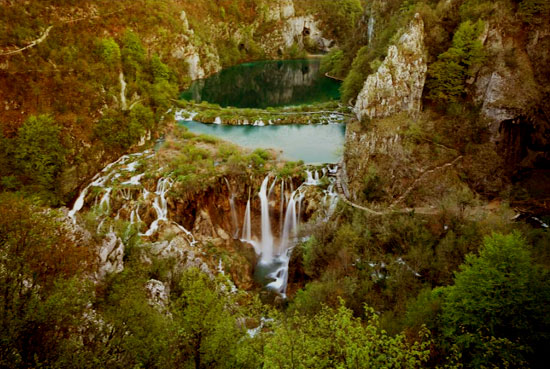|
Language
The Croatian language has both absorbed and reacted against foreign influences. It has been constantly changing and been subject to threats imposed by previous rulers. Austrian-German, Hungarian, Italian and Turkish words are found adapted to Slavic forms. In the later Yugoslav period attempts were made to impose a "Serbo-Croat" common language, with Croatian regarded as a dialect. Croats use the Latin alphabet instead of the Cyrillic used by Serbians, an echo of the tension in the area between Roman Catholic and Orthodox Christianity.
Famous people
* explorer Marco Polo is reputed to have been born on the island of Korčula, then a Venetian possession |
| * three inventors |
|
Faust Vrančić, inventor of parachutes |
|
Giovanni Luppis, inventor of torpedoes |
|
Eduard Slavoljub Penkala, inventor of ink pens, the rail-car brake, the hot water bottle, and the anode battery |
Music
* Croatia sustained a rich classical tradition but little of its music is widely known. Ero the Joker, by Jakov Gotovac, is the only internationally known Croatian opera, its story based on a Dalmatian folk-tale, and has been translated into 9 languages.
* Traditional folk music, including a capella singing and instrumental genres, survives alongside European pop and rock music.
* The Croatian pop group Riva won the Eurovision Song Contest in 1989.
* More recently rap has been used to express political protest, particularly The Beat Fleet from Split.
Education
Education expenditure: 4.4% of GDP (data from 2009)
In the past the Roman Catholic Church took the initiative in founding many educational facilities in Croatia. Primary and secondary education is now provided free by the government, and higher education is government-sponsored for higher achieving students.
Attractions
World Heritage sites
* Old City of Dubrovnik
* the Palace of Diocletian in Split
* the Plitvice Lakes district |

Plitvice Lakes
you can click for a larger picture
|
 |
The Old City of
Dubrovnik |
|